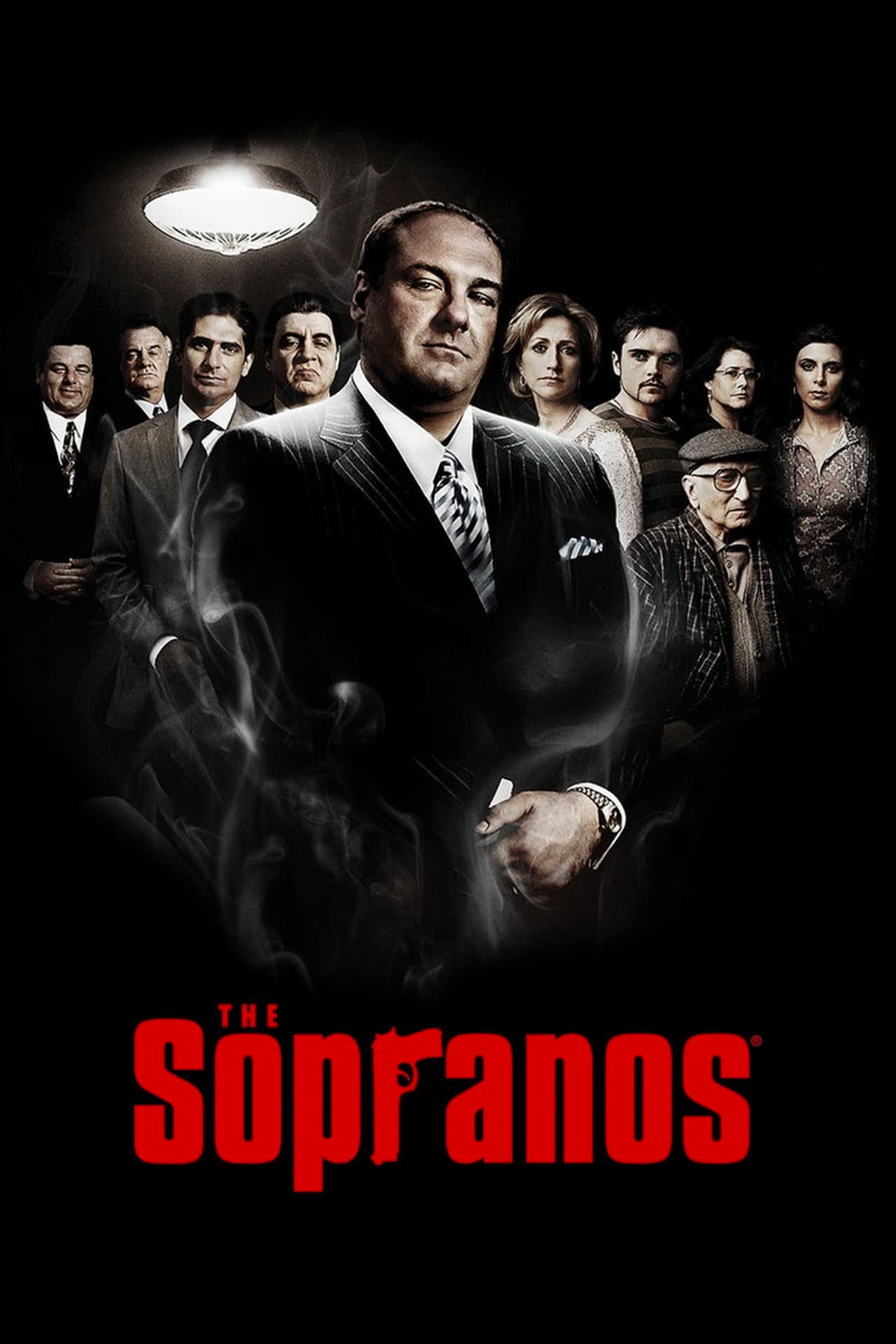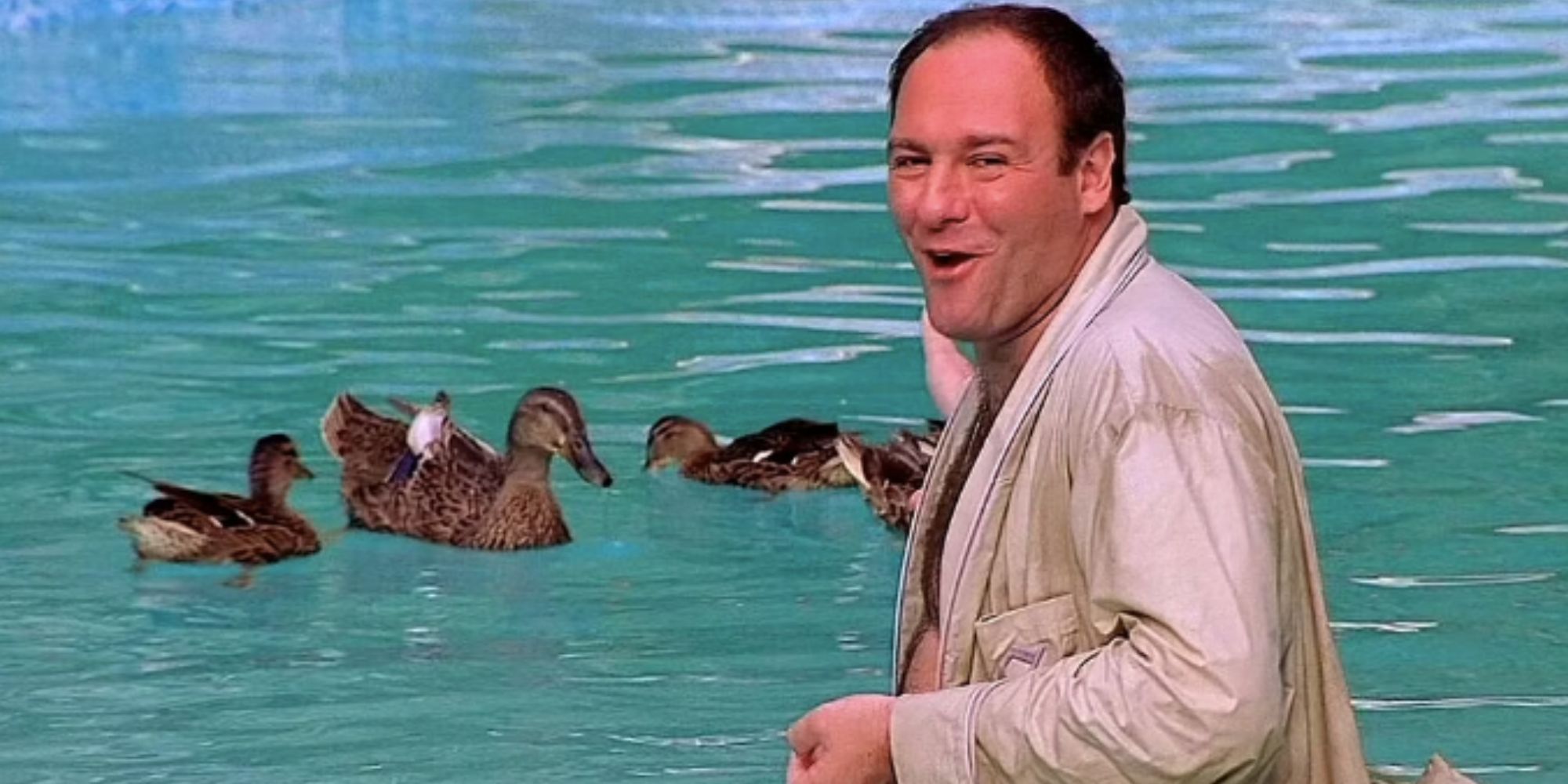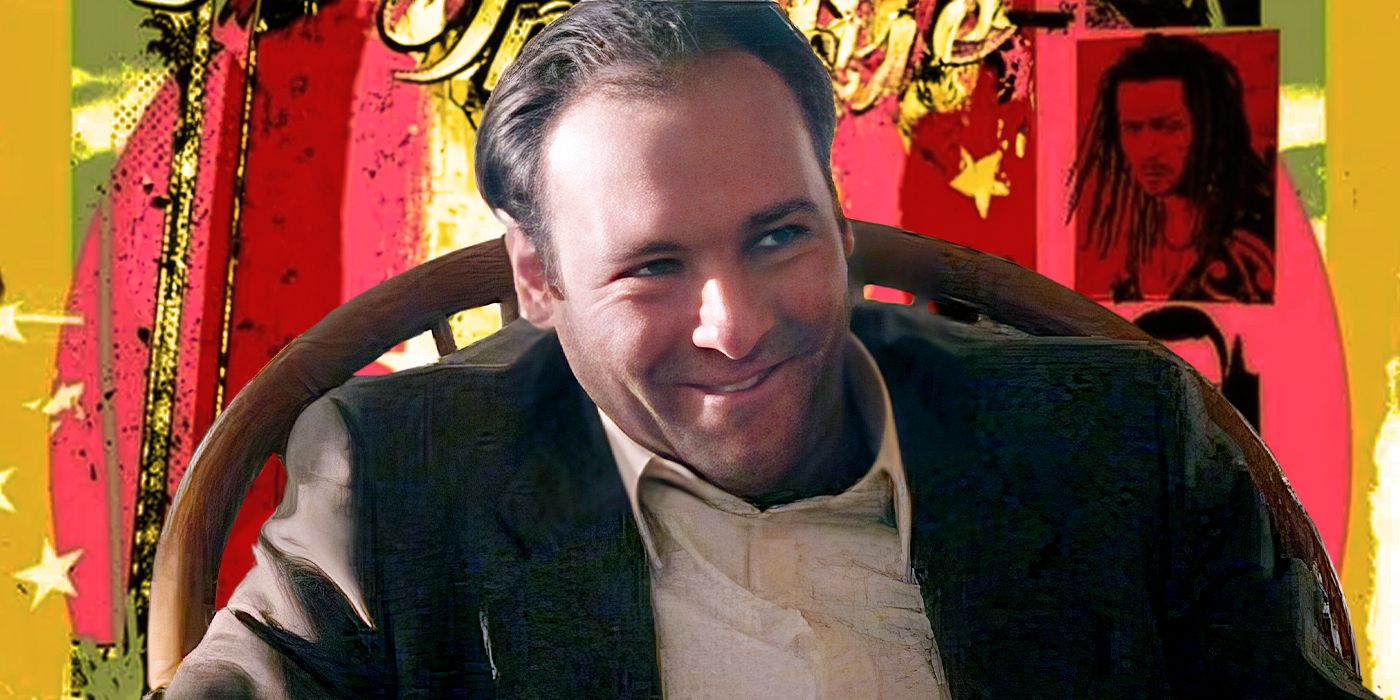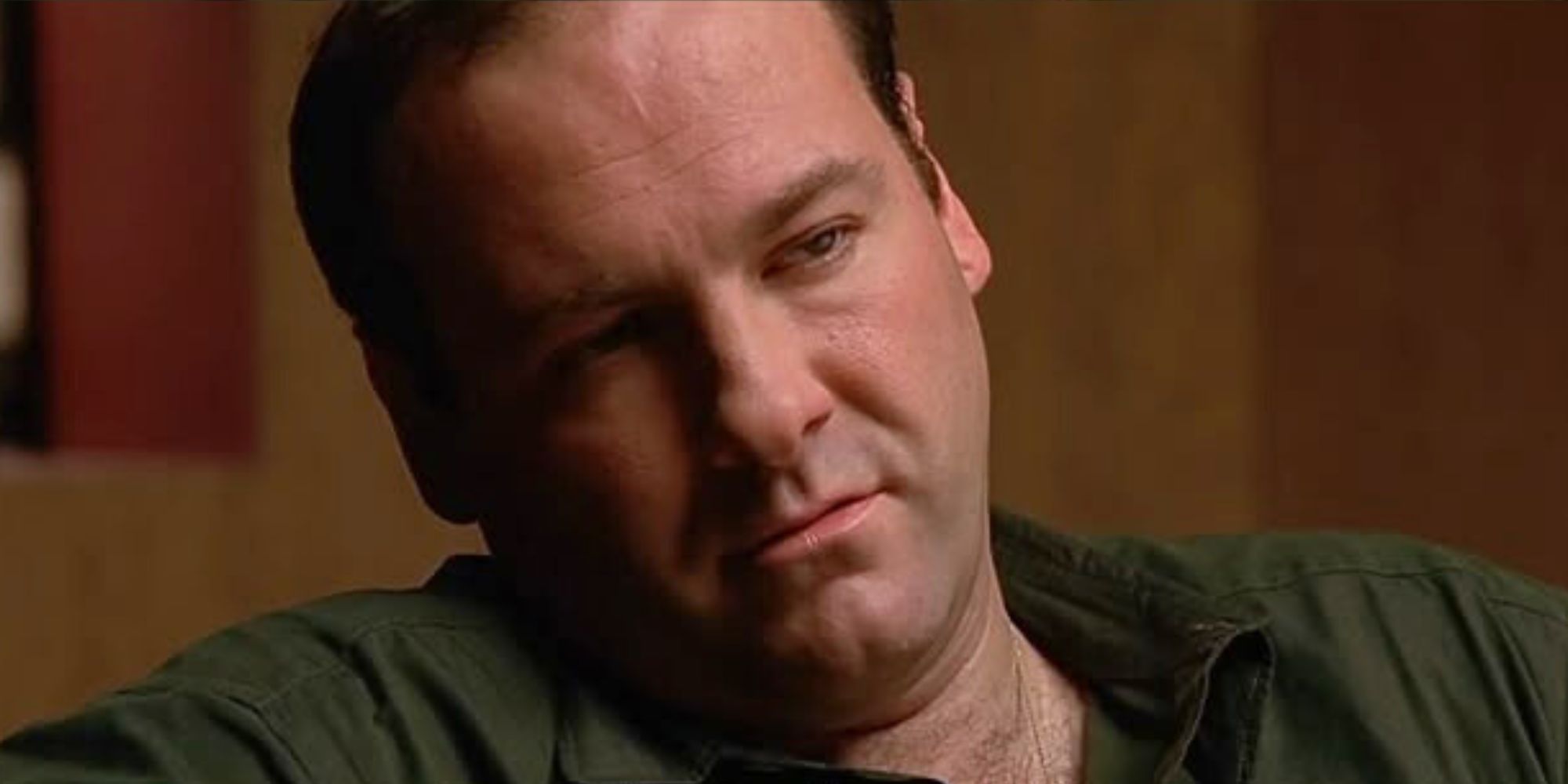Most television shows would be grateful to have a pilot episode that is one-quarter of the quality of The Sopranos‘ premiere. The debut episode, sharing the namesake of its series, introduced HBO’s audience to a whole new kind of family unfamiliar to network TV viewers. Tony Soprano (James Gandolfini) is a loving, steadfast family man, but there’s a twist. He also happens to be an influential and imposing mob boss, but there’s yet another twist. Tony also suffers from panic attacks, forcing him to seek psychiatric treatment. The concept is presented and executed with clarity and vigor, and creator David Chase should be proud. However, the often self-critical and reflective showrunner has one gripe with “The Sopranos” that has bugged him for years since its airing, and it centers around an inexplicable music choice that cheapens the severity of violence and darkness that later come to define the series.
‘The Sopranos’ Early Episodes Were Lighter in Tone
By Season 7, things get especially dark in The Sopranos, and Chase wouldn’t have it any other way. After consistently rebelling against fans who rooted for Tony and his fellow vicious wise guys, the writers relentlessly ripped the souls from their characters and examined their corroded nature for all to witness. Not only were Tony, Silvio (Stevie Van Zandt), Paulie (Tony Sirico), and Christopher (Michael Imperioli) despicable, they existed in a bleak American landscape where capitalism corrupted morality and uncertainty lingered for seemingly the rest of eternity.
Season 1, especially the four episodes preceding “College,” cited as the breakthrough and the North Star for all prestige television shows to follow, is light and comic in retrospect. While the entire series was routinely hilarious, Season 1, aired in 1999, has the tone of an edgy sitcom, and in the most extreme cases, a pure satire of mob stories. With a title that many could’ve been led to believe was a riffing on the name of the vocal range, as well as the litany of mob-related comedies, The Sopranos certainly didn’t have the makings of a show that would push the boundaries for what could be shown on television. To add further complications, two months after the show’s premiere, Analyze This, the Robert De Niro–Billy Crystal comedy about a mobster with emotional distress attending therapy, premiered in movie theaters.
For all anyone knew, they were watching a farcical mob comedy about a tough gangster who inexplicably has an existential crisis after his ducks fly away from his pool. People re-watching the series will be surprised by how much The Sopranos evolved after its premiere. From the surface-level oddities alone, from a different actor playing Father Phil Intintola to Tony’s lack of an Italian-American New Jersey accent. From a storytelling perspective, “The Sopranos” is told from Tony’s point of view as a narrator, recalling the events from the day leading up to his panic attack that landed him at Dr. Jennifer Melfi’s (Lorraine Bracco) office.
David Chase Regrets One Song Choice in ‘The Sopranos’ Pilot
Even Soprano diehards might be wondering, “Wait, was this show supposed to be a comedy at first?” following the scene where Tony and Christopher chase down a colleague in debt, with Tony running him over in Christopher’s car and subsequently beating him while down in pain. The chase through the lawn of an office building is scored by the song, “I Wonder Why,” a 1959 doo-wop song by Dion and the Belmonts. The Sopranos, based on the casting of Lorraine Bracco, Michael Imperioli, and countless other supporting players, never tried to hide its Goodfellas influence. The shadow of Martin Scorsese loomed large over this scene, which features a needle drop of a light-hearted tune juxtaposed with cruel violence, a device the director popularized in the 1970s with Mean Streets.
In the DVD commentary track for the pilot episode, David Chase admitted this was the one music selection he regretted. The showrunner, speaking alongside filmmaker and recurring cast member Peter Bogdanovich, called the needle drop “hackneyed” and “silly,” going as far as offering an apology to the audience that he brought 86 episodes worth of riveting entertainment. Bogdanovich tried to console him, arguing that the doo-wop song successfully created a “sarcastic tone,” due to the “obvious schism between what you’re seeing and what you’re hearing.”
I hate to say it, but I think Chase is right. The “I Wonder Why” needle drop egregiously underscores the tonal uncertainty of the show in its early episodes. It’s not that the show would later thumb its nose at extracting humor from macabre situations, but their masterful strokes of black comedy were never this on-the-nose and broad. Blasting a ’50s doo-wop song over a mob hit would’ve seamlessly fit into something like Married to the Mob or its 1999 counterpart, Analyze This, and it only seems more jarring compared to the show’s future seasons. The Sopranos was renowned for its bold use of obscure pop music that enhanced the understated thematic and character arcs within the margins of the narrative, but this moment leans into a generalized “isn’t the mob crazy?” mentality.
Related
This James Gandolfini Gangster Was More Terrifying Than Tony Soprano
Gandolfini’s performance in the Tony Scott film ‘True Romance’ is the scariest of his career.
‘The Sopranos’ Only Evolved From Season 1’s Broad Humor
Peter Bogdanovich’s comment on the sarcasm of this scene is fascinating because The Sopranos never resorted to tongue-in-cheek expressions of the mafia throughout its seven seasons. While the show has inspired a slew of Internet memes, it was always sincere while never losing its humorous edge. The use of “I Wonder Why” plays into what the conventional, less curious version of The Sopranos would look like: a contemporary-set mob saga ripe for glib humor about people past their prime and clinging to the old days. Subversion was the name of the game for Chase, who stripped away the nobility and perceived “coolness” of criminal outlaws glorified for nearly 100 years.
Until “College,” the Rosetta Stone to understanding The Sopranos‘ intersection of family values and the criminal lifestyle, the acclaimed HBO drama carried the energy of a single-camera sitcom with audacious performances and a sardonic tone. After Tony killed a former mafioso-turned-family man in broad daylight, the Analyze This comparisons ceased. In Season 2, when Tony is seeking new treatment after Dr. Melfi temporarily drops him as a patient, a counselor rejects him because he had seen Analyze This, prompting Tony to bite back with “It’s a f–king comedy!” The show quickly evolved into the unflinching and probing portrait of eroding humanity and 21st-century angst that we grew to love, so the writers deserved all the victory laps it could take.
Even for the ultimate visionary like David Chase, it takes some time to find your footing on a television series tonally and narrative-wise. There were bumps along the way, notably an ill-advised music selection that still annoys Chase years later, but The Sopranos grew into the definitive prestige cable drama for the rest of time.












